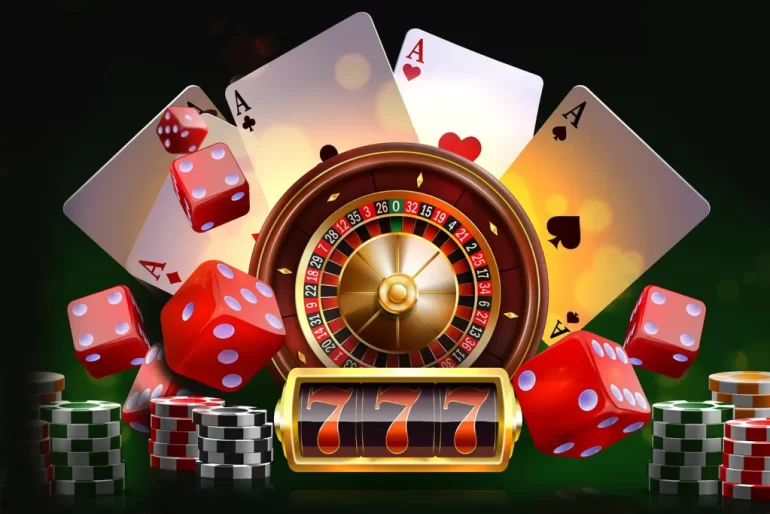With the rise of legalized gambling across much of the world, casino games bring fun and excitement to millions. However some games may be designed or operated in unfair ways that give the house a bigger edge. By understanding common signs of rigging, players can make informed choices and help keep games legitimate.
How Casinos Rig Games to Their Advantage
While Unibet Casino nl games are allowed a statistical advantage for the house, additional rigging crosses ethical and legal bounds. Rigged aspects often go unnoticed by average players and can be hard to prosecute. Common signs of unfair play include:
- Tampered equipment like weighted dice or marked cards that influence outcomes. This has historically been an issue with physical games.
- Improper payouts that don’t match stated odds and probabilities. Programming digital slots and tables with incorrect payout percentages is a common form of fraud.
- Manipulated results and fake randomness that make games less random than they appear. PRNGs with poor implementations can alter distributions.
Casinos have plenty of incentives to subtly skew games in their favor. With multi-million dollar operations, extra profits from even tiny edges quickly add up. Yet getting caught rigging games can cost licenses, customers and millions in fines. Players must watch for red flags to help keep their entertainment fair.
Casino Odds Comparison
While you can’t expect a perfect game every time, smart choices can help avoid the worst odds. Table games that rely more on actual randomness than computerized outcomes prove harder to artificially manipulate. Comparing different games shows a wide variance:
| Game Type | Average House Edge |
| Blackjack (with perfect basic strategy) | 0.5% |
| Baccarat | 1.06% |
| Craps | 1.41% |
| Roulette | 2.7% (single-zero wheel) / 5.26% (double-zero wheel) |
| Slots | 10% or higher |
Within each category, odds can also swing based on specific rules and options. Checking published payout reports also offers insight into typical returns.
Live Action Table Suspicious Behavior
While self-contained digital games allow behind-the-scenes tweaking invisible to players, table games with human dealers offer more observable play. Watching administration and equipment for odd behavior and inconsistencies provides tells against foul play:
- Frequent dealer rotations, especially before payouts land. This can indicate special placement of skilled manipulators.
- Cards and dice that are removed from play instead of randomized checks. This prompts questions on switching out items.
- Visible markings on equipment that could be read by dealers or cameras overhead. Keep an eye out for anything that stands out.
- Hesitations, signals and reactions from dealers to supervisors about certain hands or outcomes. Out of the ordinary responses suggest interference.
Of course, reasonable variations occur even in fair games. Subtle cheating goes purposefully overlooked. But huge shifts in typical probabilities over time suggest tampering requiring closer investigation.
Digital Game Software for Hidden Edges
Computerized casino games rely on software containing random number generators, payout logic and other settings under the hood. Players can’t peer into these processes firsthand. Yet regulators and third parties audit certain logic like:
- RNG and distribution analysis checks whether games produce truly unpredictable results within expected probabilities. Flaws point to poor coding or manipulation.
- Payout audits verify whether games return adequate percentages quoted to players over time. Failure indicates fraud.
- Code reviews on occasion uncover malicious additions like dormant subroutines able to alter payouts when triggered. These backdoors allow remote tampering.
While not every line of code can be inspected, even slot software contains over 1 million lines. Steps do exist to mathematically and digitally audit the most critical components.
Vigilance Against Unrecognized Dangers
Getting definitive proof of rigged games often requires inside information or confession. Yet through awareness of common fraud tactics, players can develop an eye for games where something seems amiss. Avoiding titles and venues with questionable behavior, whether due to unfair tweaks or poor oversight alone, retains a better experience and your hard-earned money.
Combining savvy game selection, attentiveness during play and choosing reputable regulators minimizes the risk of rigged results. And if you ever suspect cheating firsthand, quietly report the details to management through official channels. Protecting fair play remains a shared responsibility between casinos and customers alike. Stay observant, trust your intuition and don’t hesitate to walk away when games look too good to be true. Care and transparency keeps the casino world spinning for everyone’s enjoyment.






